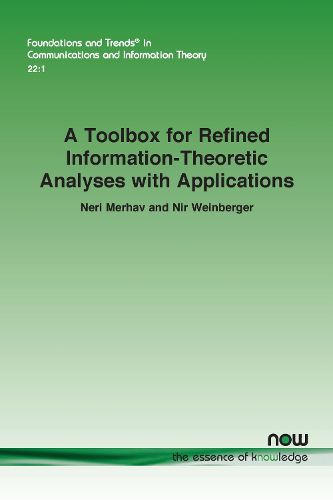Readings Newsletter
Become a Readings Member to make your shopping experience even easier.
Sign in or sign up for free!
You’re not far away from qualifying for FREE standard shipping within Australia
You’ve qualified for FREE standard shipping within Australia
The cart is loading…






This monograph offers a toolbox of mathematical techniques that have been effective and widely applicable in information-theoretic analyses. The first tool is a generalization of the method of types to Gaussian settings, and then to general exponential families. The second tool is Laplace and saddle-point integration, which allow to refine the results of the method of types, and is capable of obtaining various precise asymptotic results.
The third is the type class enumeration method, a principled method to evaluate the exact random-coding exponent of coded systems, which results in the best known exponent in various problem settings. The fourth is a subset of tools aimed at evaluating the expectation of non-linear functions of random variables, either via integral representations, by a refinement of Jensen's inequality via change-of-measure, by complementing Jensen's inequality with a reversed inequality, or by a class of generalized Jensen's inequalities that are applicable for functions beyond convex/concave. Various examples of all these tools are provided throughout the monograph.
$9.00 standard shipping within Australia
FREE standard shipping within Australia for orders over $100.00
Express & International shipping calculated at checkout
This monograph offers a toolbox of mathematical techniques that have been effective and widely applicable in information-theoretic analyses. The first tool is a generalization of the method of types to Gaussian settings, and then to general exponential families. The second tool is Laplace and saddle-point integration, which allow to refine the results of the method of types, and is capable of obtaining various precise asymptotic results.
The third is the type class enumeration method, a principled method to evaluate the exact random-coding exponent of coded systems, which results in the best known exponent in various problem settings. The fourth is a subset of tools aimed at evaluating the expectation of non-linear functions of random variables, either via integral representations, by a refinement of Jensen's inequality via change-of-measure, by complementing Jensen's inequality with a reversed inequality, or by a class of generalized Jensen's inequalities that are applicable for functions beyond convex/concave. Various examples of all these tools are provided throughout the monograph.